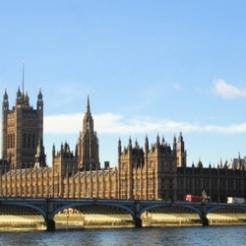Significant charitable resources are being wasted on complying with the potentially “crippling” administrative burden of the Lobbying Act, according to research published today by consultancy nfpSynergy.
The research found that charities perceive that there is significant risk of breaking the law, as well as significant risk to their reputation, and have therefore made substantial changes to their working practices.
The Transparency of Lobbying, Non-Party Campaigning and Trade Union Administration Act, passed last year, places limits on political activity by third parties in the run up to an election, and charities have said it may harm their ability to campaign.
It requires charities in England which expect to spend more than £20,000 on political campaigning to register with the Electoral Commission, and thereafter supply the Commission with increased information.
The nfpSynergy report into the effects of the Act was based on in-depth interviews with charity public affairs officers. It found that charities were uncertain about the interpretation of the Act, which they felt to be very vague, but were also extremely reluctant to become a test case for the new legislation.
“Many people we spoke to felt that the drain on resources was the biggest impact of the Lobbying Act on their organisation,” the report said. “Coming to grips with this legislation has cost them money (in the form of fees paid for legal advice) and staff time (interpreting the legislation, attending meetings with other organisations, conferring with the Electoral Commission, writing internal guidance and disseminating it throughout the organisation), both of which would have otherwise been used to further the organisation’s charitable goals.”
One charity public affairs officer said the burden of compliance for any charity which registered with the Electoral Commission was “overwhelming” and “unnecessary”. Another said that even for some charities which did not register, the amount of work needed to comply would be “crippling”.
In response to a request under the Freedom of Information Act, the Electoral Commission has said it is not investigating any charities over a concern that they may have breached the act.
The report said that the Electoral Commission should take two substantial steps to help charities: redefine the “purpose test” which explains what charities must intend to do before they are caught by the act, and take steps to proactively reassure small charities.
“We have found from our research that the Act has already had significant impacts on the third sector in the form of investment of resources,” the report said. “How the conversation progresses will be largely determined by whether or not there is a test case.
“NfpSynergy’s long-term monitoring of charity brands tells us that if there is a test case, the charity in question is likely to suffer reputational damage by being branded ‘political’, which may continue for several years.”









